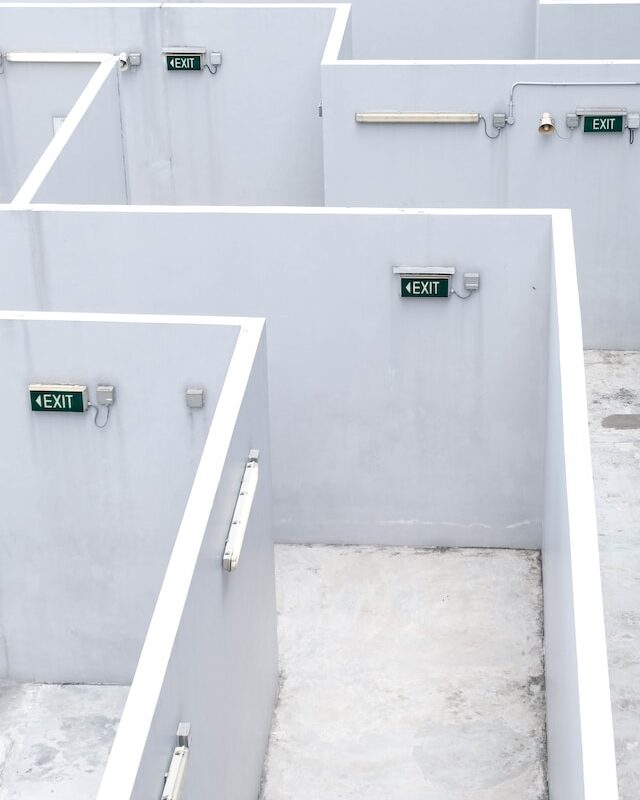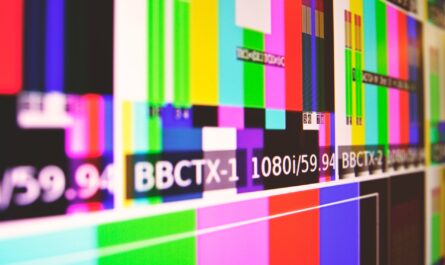Distraction has become an ever-present problem for professionals and students alike. In his prescient Amusing Ourselves to Death, Neil Postman argued that screens and television were inherently entertaining mediums. Television can not help us learn because they are designed to not require callback or memory, but to be enjoyed by everyone from the moment they tune in. Education, on the other hand, very much requires memory. Building on the work of media theorist Marshall McLuhan, Postman argued that television overwhelms our senses and while mesmerizing, it does not educate us. Screens are devices which deplete our mental resources. A handful of decades later, Nicholas Carr argued in The Shallows that the Internet is inherently distracting because it trains our attention to be scattered and to only ever skim the surface of anything we read. Today, we live in a world saturated with both these inventions. The result is a population losing its desire to read deeply and its ability to concentrate for extended periods. What are we to do? Over the past ten years, I’ve experimented with different methods of working, structuring my free time, and paying attention to where my attention goes. Here’s what I’ve learned.
The most surprising aspect of the concern around distraction is understanding that distraction is built into the Internet by choice. The interconnected series of web pages and information that make up the Internet isn’t itself the problem. Likewise, the ease of being able to talk with your friends and family over the Internet isn’t the problem. The problem lies how these platforms are built – on a model of selling their users’ information. The problem lies in how advertisers structure their businesses. The devices we use today are created by companies looking to profit, and exploited by marketers and social media platforms making money from tracking our online activity. Even more troubling, these phones and applications are designed by engineers drawing on psychological evidence to make their technology less easy to ignore, more addictive, and increasingly integrated into everyday life. Being businesses, their financial incentive creates a situation where companies always need more information to sell to more advertisers. It is for this reason advertisers and social media platforms alike are always primarily concerned with keeping users interacting with their product or platform. It is simply their business model. Until the financial incentives change, this will be the nature of the Internet.
As I learn more about focus, it’s becoming clear that while attention is an individual concern, this has also become a societal issue. Democracies depend on their populations maintaining the ability to focus long enough to discuss problems, find answers, and see solutions through. This is also a societal issue because most conversations around focus and attention tend not to take into account the many ways in which modern society has collectively made it all but impossible to pay close attention to anything. Technology is just one part of modern society, however. Research in recent decades shows issues with attention and focus continue to be worsened by environmental pollutants, by poor quality food and poisoned drinking water, by being chronically under-slept, by constant noise pollution, and yes, by notifications and messages pinging and eroding our attention across the day. The nutrition level of the foods we eat, the pollution in our environments, external factors like safety or danger all impact our physical and mental health. Looking at the attention crisis only in terms of individual action lets the major businesses and industries targeting and profiting from our attention or from poisoning our environment off the hook. Any discussion of focus and attention needs therefore must address societal environmental changes, in addition to individual habits.
Having established there is more involved in attention than personal choices, we can acknowledge that our habits do shape our daily lives and therefore have a role to play in our attention. We know our focus is being hijacked by being on devices all day. At the very least, a vague wariness of staring into screens all day is beginning to diffuse through society. We’re starting to see the emotional and mental toll of being always connected. Our thinking at work is fractured and less effective; our free time is dominated by online platforms. Yet, we also know that using the Internet is a part of daily life.
The solution to this predicament was actually recommended a century ago, when Arnold Bennett wrote to “put more thought into your leisure time.” For many of us, the idea of planning or scheduling our down time seems counter-productive. Isn’t the point to not have plans and be ‘free’ to do whatever strikes us in the moment? Not necessarily. Our minds are enriched and energy boosted by completing the tasks we set our sights on. Scheduling and then sitting down to read a favorite book, or new title on a topic of interest will give you more energy, rather than deplete you, as it’s something you’ve intrinsically desired and achieved. Having an infrastructure in place to use and enjoy your time will allow you to concentrate more fully and not have stray distractions pop up to disturb you. Giving our days the structure necessary to support focus and concentration is something we can all do to help bring more focus to our days.
By far, the most influential habit I’ve found is pausing to ask myself, “Is this how I want to spend my time?”. It’s a simple question, but one that brings the reality of time into perspective. We only have so much time in a day – do I really want to spend an hour scrolling social media? Was there not anything else I wanted to accomplish today? I firmly believe technology should only be used to improve our lives. Once a technology becomes compulsive or overbearing, it has become too powerful and disruptive. The Internet can be useful and positive, but without restraints, it can also be incredibly destructive. We know screens excite and command our attention, monopolizing our attention from nearly everything else going on around us. Our devices and apps should work for us, not be used to manipulate us into doing research for advertisers. Perhaps you’ve also experienced logging onto a platform or checking your email with the intention of spending “just a few minutes catching up,” only to look up hours later and realize all that time is now gone, never to return. I’ve been there and found that realization incredibly disappointing, so I’ve taken steps to make sure that doesn’t happen.
I am a creature of routine. Having strict rules around how I use my devices, the Internet, and social media has become the best way for me to navigate dealing with these technologies, during work and free time alike. They’ve been instrumental in maintaining my focus. Starting my day with a plan – and reminding myself of the plan throughout the day – has worked well. Each morning begins with a bit of reading and journaling, then I go over what I want to accomplish that day, as well as reviewing my bigger goals. While I’m working, I block off notifications on my computer, and check email during designated time blocks, usually during a short window of admin tasks and again before lunch. This allows time to concentrate fully, but also ensures I take care of day-to-day tasks. Outside of work, I focus my time by researching a topic I want to learn about or practicing skill I’d like to develop. All goals require time, and I’d much rather put more time towards achieving them or with hobbies, than spend it scrolling or watching something mindless. I think most people would agree. I make sure to spend time with my loved ones, doing whatever, but I also make sure that I spend my personal time on things which fulfill and restore my mind and energy, rather than deplete them. Making a list of goals for the day helps focus my attention from the very start.
The biggest challenge I’ve found recently is maintaining focus while reading books. I am no Luddite; I enjoy the convenience of reading books on my tablet and I enjoy following stunning photographers on Instagram. However, I prevent these enjoyments from potentially derailing my day (which is easily done) with some guidelines for how I use them. I read on the tablet in airplane mode, so nothing is chiming randomly. There are also no social media apps on this tablet because I want to be able to read without distraction. As I finish or begin titles, I switch on the Internet, email my Kindle highlights to myself, download the new title I want to read, then switch back into airplane mode. I take notes on paper and look up references after I’m done reading, so I don’t wind up in an Internet rabbit hole after looking up an obscure reference. Finally, I make sure to buy my fiction titles in print, so I can relax with them before bed without being concerned about the light keeping me awake.
As for my phone, the single biggest change I’ve made is turning off all notifications from social media and news alerts. I also turned off notifications for email and keep my phone in Do Not Disturb so only programmed numbers from close family can immediately reach me at any time. I check my phone at lunch and in the evenings. Beyond that, there really isn’t any conversation which can’t wait a couple hours until after I’m done concentrating on what I’m already doing.
Over the years, I’ve deleted most social media because I simply don’t find it interesting or worth the time. Asking myself that simple question – Is this how I want to spend my time? – has often prompted me to read or make a phone call or otherwise make use of spare moments of time, instead of just killing them. I have never been a heavy social media user, but even spending just half an hour online, I started noticing that I could end up in a bad mood just scrolling Facebook, depending on the posts I saw. Once I realized the platform was putting me in a bad mood, I deleted it from my devices. Today, I have time limits on Instagram (my only social media) during the week. On the weekends, I don’t check social media at all, preferring to block off time for reading and hobbies if I don’t have other plans.
The question I continue to ask myself regarding social media is, “Is this how I want to spend my time?” and most often, the answer is no. Taking a moment to pause and think about what I might want to do with the next few minutes (or hours) has helped me reclaim time and focus. Having strict rules and boundaries around social media and streaming apps have helped me waste less time and spend more of it on things I actually find worthwhile; catching up with friends and family, reading, and my other hobbies. This simple question can make all the difference in your focus for the day.
Photo by Rayson Tan on Unsplash




